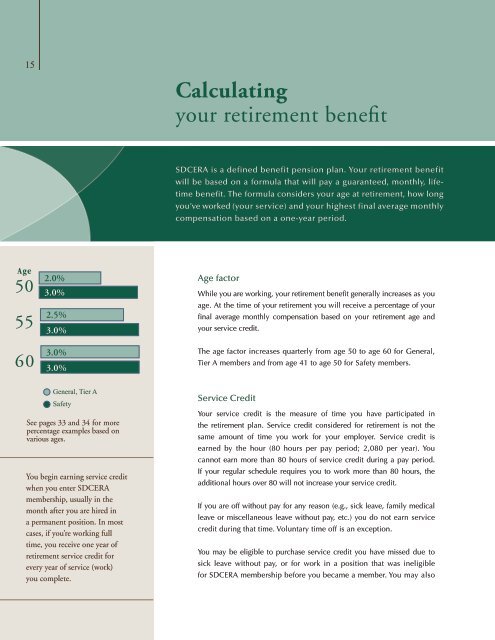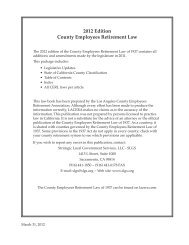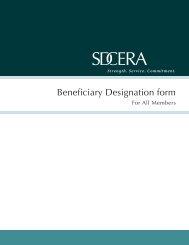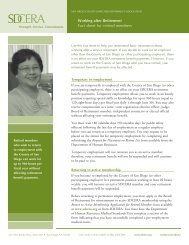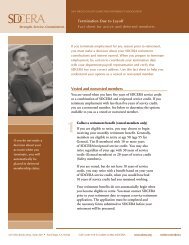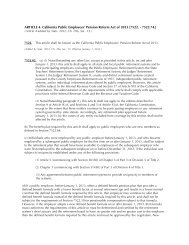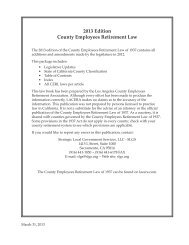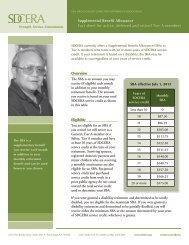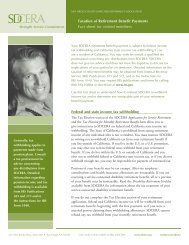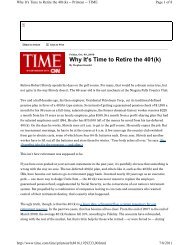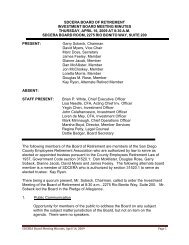Retirement Plan booklet - sdcera
Retirement Plan booklet - sdcera
Retirement Plan booklet - sdcera
Create successful ePaper yourself
Turn your PDF publications into a flip-book with our unique Google optimized e-Paper software.
15<br />
Calculating<br />
your retirement benefit<br />
SDCERA is a defined benefit pension plan. Your retirement benefit<br />
will be based on a formula that will pay a guaranteed, monthly, lifetime<br />
benefit. The formula considers your age at retirement, how long<br />
you’ve worked (your service) and your highest final average monthly<br />
compensation based on a one-year period.<br />
Age<br />
50<br />
55<br />
60<br />
2.0%<br />
3.0%<br />
2.5%<br />
3.0%<br />
3.0%<br />
3.0%<br />
Age factor<br />
While you are working, your retirement benefit generally increases as you<br />
age. At the time of your retirement you will receive a percentage of your<br />
final average monthly compensation based on your retirement age and<br />
your service credit.<br />
The age factor increases quarterly from age 50 to age 60 for General,<br />
Tier A members and from age 41 to age 50 for Safety members.<br />
General, Tier A<br />
Safety<br />
See pages 33 and 34 for more<br />
percentage examples based on<br />
various ages.<br />
You begin earning service credit<br />
when you enter SDCERA<br />
membership, usually in the<br />
month after you are hired in<br />
a permanent position. In most<br />
cases, if you’re working full<br />
time, you receive one year of<br />
retirement service credit for<br />
every year of service (work)<br />
you complete.<br />
Service Credit<br />
Your service credit is the measure of time you have participated in<br />
the retirement plan. Service credit considered for retirement is not the<br />
same amount of time you work for your employer. Service credit is<br />
earned by the hour (80 hours per pay period; 2,080 per year). You<br />
cannot earn more than 80 hours of service credit during a pay period.<br />
If your regular schedule requires you to work more than 80 hours, the<br />
additional hours over 80 will not increase your service credit.<br />
If you are off without pay for any reason (e.g., sick leave, family medical<br />
leave or miscellaneous leave without pay, etc.) you do not earn service<br />
credit during that time. Voluntary time off is an exception.<br />
You may be eligible to purchase service credit you have missed due to<br />
sick leave without pay, or for work in a position that was ineligible<br />
for SDCERA membership before you became a member. You may also


